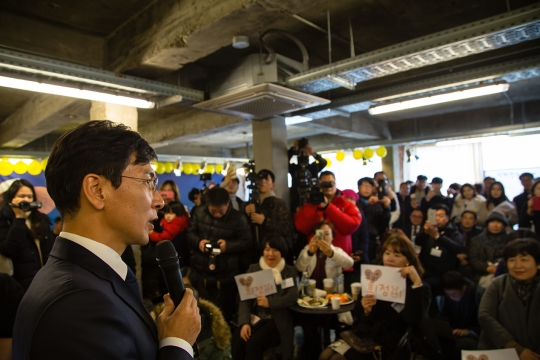
Moon Jae-in, the leading candidate with an approval rating of 31% according to the poll conducted by Gallup Korea on Mar. 23, has proposed several pledges to deal with the Fourth Industrial Revolution. Moon Jae-in declared that he will establish a new presidential committee in order to prepare for the Fourth Industrial Revolution. He also made other proposals such as the expansion of the Small and Medium Business Administration, training 10,000 software teachers, and constructing the fastest Internet of Things (IoT) environment in the world.
Ahn Cheol-soo, a former leader of the People’s Party, has argued that the government should support private research, not try to lead the private sector in the government’s favor. He also suggested changing the school system to five years of elementary school, five years of middle school, and two years of career exploration to raise talents from various fields. He promised to promote start-up businesses and evaluate research based on process rather than result.
Lee Jae-myeong, the Mayor of Seongnam, pointed out that Korea needs to be ready for the negative side effects of the Fourth Industrial Revolution while also promoting industries such as AI, IoT, and big data. He also mentioned the poor working condition of software labors and promised to improve their working condition.
Ahn Hee-jung, the governor of Chungcheongnam-do Province, attended in a debate held in the National Assembly and emphasized that politics and government should not pressure researchers because of short-term goals.
Presidential candidates, except those belonging to the Liberty Korea Party, have commonly agreed that the Ministry of Science, ICT, and Future Planning (MSIP) should be eliminated and an integrated control tower to promote science and technology research should be established.
The scientific community is expecting the abolition of the project-based system and construction of an environment enabling autonomous research. There are also some criticisms that pledges are not polished, and candidates need to suggest specific measures to solve problems that the Korean scientific community is currently facing.
Proessor Im Gyeong-soon, head of the Center for the Advancement of Science and Technology, has argued in a Chosun Ilbo article that “the Korean scientific community is drawing a blank not because of the lack of support, but because of the research climate that treats basic science lightly.”
ى €ى‘권ىگ © يڈ¬ي•ê³µëŒ€ى‹ 문 무단ى „ى¬ ë°ڈ ى¬ë°°يڈ¬ 금ى§€


